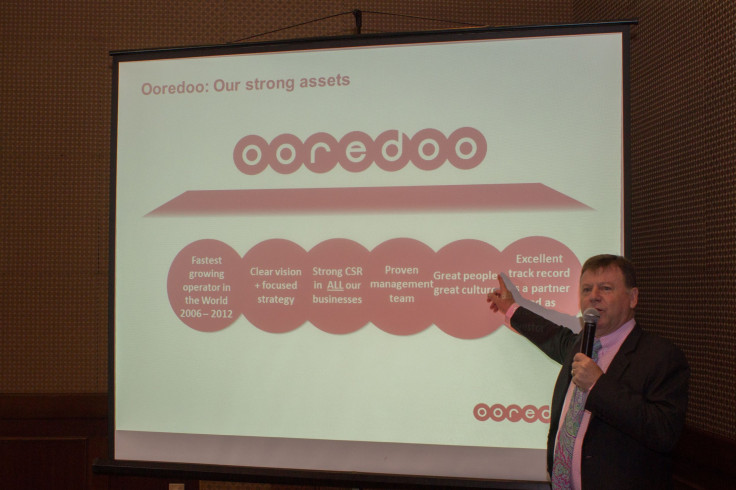Myanmar Getting Affordable Telecom Mobile Services Coverage From Qatari Company Ooredoo By Early Next Year

Qatari’s telecom giant, Ooredoo, one of the lucky winners of Myanmar’s sought-after telecom tenders, pledged on Friday to introduce affordable phone services to the Southeast Asian nation next year as it invests $15 billion to build from the ground up the nation's mobile infrastructure.
Currently, Myanmar’s mobile coverage is less than 10 percent. In June, Ooredoo and Norway’s Telenor won contracts to develop the mobile network in the country. Official 3G licenses to the companies should be granted by the end of this year, the Agence France-Presse (AFP) reported on Friday. Ross Cormack, the Senior Representative for Ooredoo in Myanmar, said the company will begin to roll out its mobile services within six months after that.
"People can use Ooredoo's services next year ... we need to build quickly, not only in cities but also in rural areas," Cormack said. Ooredoo’s services will include money transfers and weather data for farmers.
Under the former junta regime in Myanmar, mobile phones and SIM cards were largely unaffordable. As a result, the country has one of the lowest mobile penetration rates in the world. The government is now trying to make prices more affordable, and Ooredoo and Telenor have been brought in to operate alongside state-owned Myanmar Posts and Telecommunication (MPT), and Yatanarpon Teleport (YTP).
Ooredoo and Telenor’s licenses will be valid for 15 years, and are the first to be awarded by the Myanmar government.
In a statement in July, the government said Ooredoo had “committed” to selling SIM cards for about $1.5, compared to about $200 previously, and to charging roughly four cents for off-peak calls. Ooredoo did not directly comment on the pricing scheme it plans to offer, according to the AFP.
“I can’t say exactly but you will find it attractive and affordable,” Cormack said regarding how Ooredoo’s calls will be priced, but added that its products will be widely available. Up to 97 percent of Myanmar’s 60 million people will have access to them. “We will deliver SIM cards and all the services at every roadside stores and to villages.”
The company, formerly known as QTel, will invest in selling its services at tens of thousands of outlets across the country, with a focus on add-ons including providing market prices, the AFP reported.
Shortly after the announcement of the tender winners, there were some protests over the government’s choice, as Ooredoo is a Qatari company, and Qatar is a largely Muslim country. Myanmar has a history of religious conflicts between its Buddhist majority and the Muslim minority.
© Copyright IBTimes 2024. All rights reserved.











